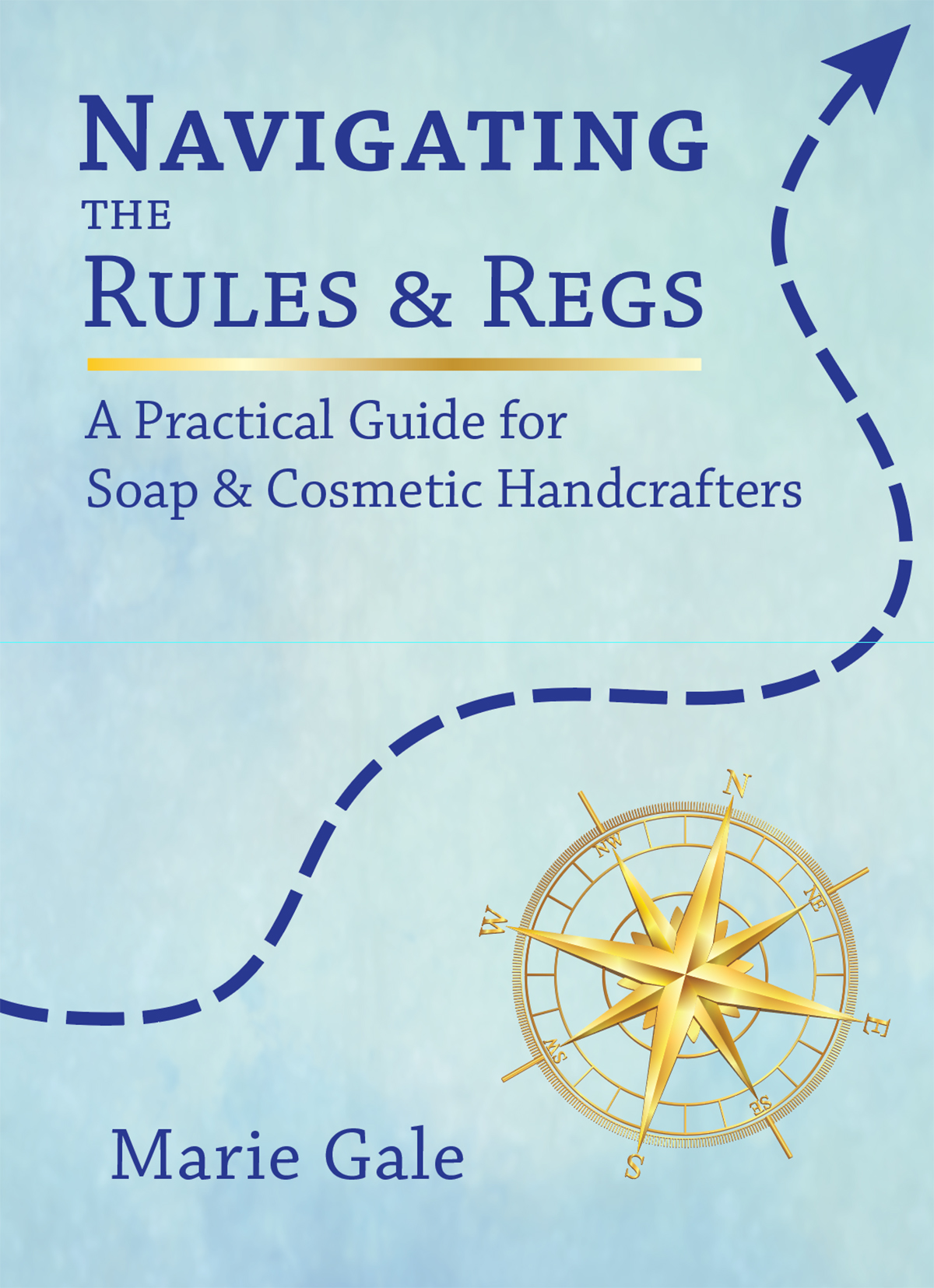For most people making and selling handcrafted soap and/or cosmetics “natural colorants” means ingredients such as herbs and spices that will change the color of your product. If you do a Google search for “natural colorants” you will find articles, posts, messages, books, webinars, and much more detailing the many ways you can make beautiful and colorful products without the use of chemical or synthetic dyes, micas, or pigments.
Is Using Natural Colorants Legal?
The simple answer:
For Cosmetics: Some natural colorants (only the ones approved by the FDA) are legal.
For Soap: Yes (sometimes, maybe).
Of course, the actuality is a bit more complex.
Is it a Soap or Cosmetic?
I’ve been over this point more than once, but to recap:
Key Word to Know:
Cosmetic:
(1) articles intended to be rubbed, poured, sprinkled, or sprayed on, introduced into, or otherwise applied to the human body or any part thereof for cleansing, beautifying, promoting attractiveness, or altering the appearance, and (2) articles intended for use as a component of any such articles; except that such term shall not include soap.1
In order be exempt from the definition of a cosmetic (what I tend to call true soap), the soap must meet the following requirements:
Key Word to Know:
Soap
(1) The bulk of the nonvolatile matter in the product consists of an alkali salt of fatty acids and the detergent properties of the article are due to the alkali-fatty acid compounds; and
(2) The product is labeled, sold and represented only as soap.2
In order to meet this definition of “soap” the product can only be marketed as “soap.” That means that you can’t say it will do anything other than clean: claiming that it is moisturizing, soothing, deep cleaning, shampoo, etc., all turn the soap into a cosmetic.
The FDA regulates cosmetics, as well as color additives for food, drugs, cosmetics and medical devices.
The Consumer Product Safety Commission oversees the safety of soap; the Federal Trade Commission oversees the labeling of soap.
Color Additives
As noted above, the FDA regulates color additives that may be used in food, drugs, or cosmetics. In fact, color additives are the only products which the FDA tests and certifies before they can be placed on the market.
Key Word to Know:
Color Additive:
Any material … that, when added or applied to a food, drug, or cosmetic or to the human body or any part thereof, is capable … of imparting a color thereto.3
By that definition, any material that is capable of imparting a color to a cosmetic is a color additive.
That means “natural colorants” ARE color additives.
Why is That Important?
Because only FDA approved color additives may be used in cosmetics.
Using an unapproved color additive causes the product to be “adulterated” (and therefore illegal to sell).
Used for Some Other Reason
When I wrote the first edition of my book (back in 2008), I read the definition of a “color additive” to mean that if the ingredient or material was intended to be used for some other purpose and “happened” to change the color of the product, then it wasn’t a color additive per the definition. After further study, I’ve come to realize that I was wrong.
The only way an ingredient that changes the color of the product is NOT a color additive is if the change in color is clearly unimportant to the value, marketablilty, or consumer perception of the product.
If you were to use “natural colorants” to make a rainbow soap, the color would definitely be part of the value of the product; so all those natural colorants would qualify as color additives. If the soap were marketed as a cosmetic, then it would contain unapproved color additives and would be in non-compliance with the law and FDA regulations.
Can You Use Natural Colorants? – Revisited
Cosmetics
The ONLY color additives that may be used in cosmetics are color additives that are known to be safe and are approved for use in cosmetics, and then only for the use(s) for which they are approved. There are some “natural colorants” allowed in cosmetics, but not many. There is a full list of color additives approved for cosmetics on the FDA website.
Soap (That is Not a Cosmetic)
There is nothing preventing the use of “natural colorants” in soap that is exempt from the definition of a cosmetic. You are, of course, responsible for ensuring that any ingredients used in your soap are safe.
Soap (That IS a Cosmetic)
It’s a cosmetic, so see above.
Personal Use Only
These laws and regulations apply to soap and cosmetics that are being marketed and sold.
If you are making the soap for yourself or your family, and are not selling the product, then you can color your products however you want.
My advice, however, would be to use the laws and regulations as a guide to what is safe, and stick to ingredients and color additives that have been proven safe.



Leave a Reply